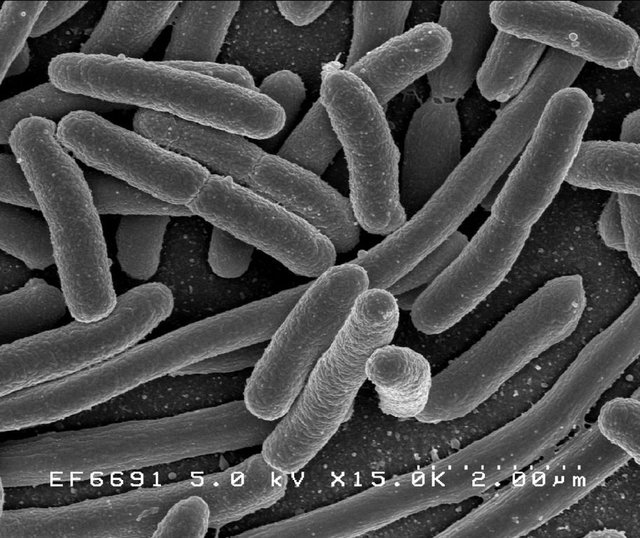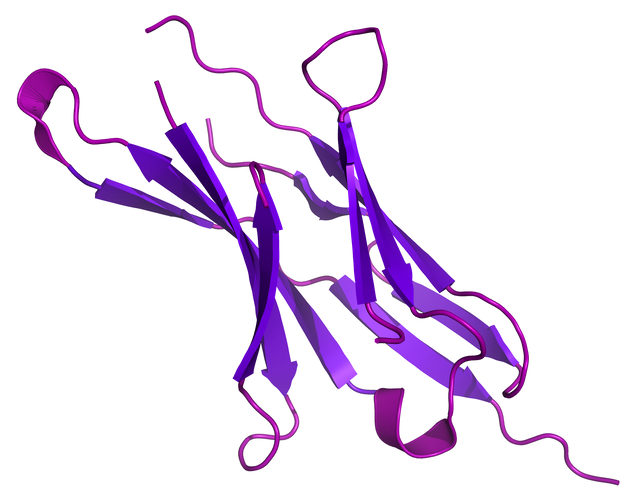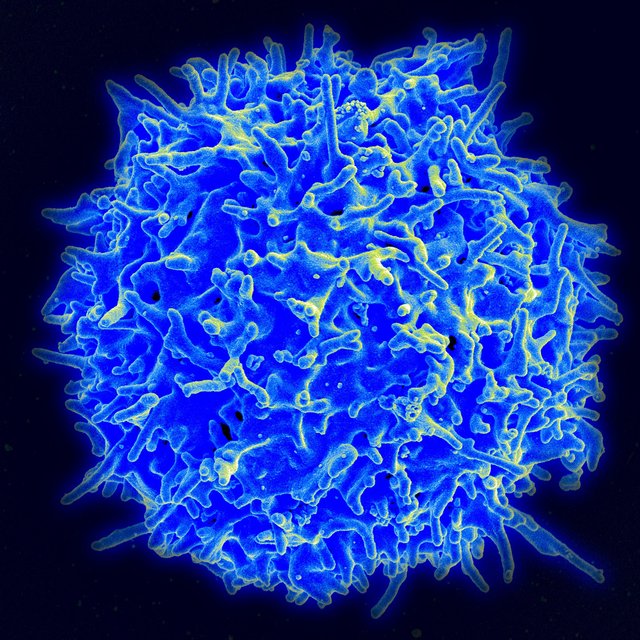More Friends than Foes; Gut Microbiota and Cancer Immunotherapy
We had a slogan back then in my undergraduate days in the university, members of the National Association of Microbiology Students would yell “understanding the microbial world!” to signify the commencement of every meeting. This phrase did made me feel like I was “loving up” these microscopic organisms (of course, partly because I have not had any serious symptomatic microbial infection to deal with).
The more I get to know and understand microorganisms, the more I see them as “friends” rather than “foes”
Yes, microorganisms (bacteria, fungi, algae, etc.) are more of our friends than foes.
Within and on us humans, microorganisms colonize and resides on several tissues. The large number of them are yet to be known and understood. But from the very few thousands that has been identified, certain of them were established to be essentially beneficial to humans, while the role the others play has not been fully stated.
This community of microorganisms are called the “Human Microbiota”. They include bacteria, fungi, archaea, protists and viruses, and resides on skin, mammary glands, placenta, seminal fluid, uterus, ovarian follicles, lung, saliva, oral mucosa, conjunctiva, biliary and gastrointestinal tracts source.
The Gut Microbiota
The millions of microorganisms found as normal dwellers in the digestive tract of animals and humans are called ”gut microbiota”. The gut has the highest percentage "in number" of the human microbiota.
Well, when you think about it, it definitely should house the larger part of the microbial community, as the gut or digestive tract is the path for everything that comes in through our mouth, and that includes majorly food and water, and who doesn’t like to make his abode where his daily needs can be met? Certainly not microbes.
Considering that new-borns are born sterilesource, are their (the microbes) “many numbers” in the intestine of grown-ups not fascinating? They colonize the gut and continue to do so as the infant grows, getting accustomed to the intestinal environment and establishing a strong and “everlasting” way of evading the immune system while making themselves comfortable and at home.
Research has shown that humans share a common one third of their gut microbiota, while the remaining two thirds are unique to every individual. In ESNM words, “the unique two-thirds are like individual identity cards”. Nonetheless, they perform similar functions in every human.
Gut microbiota perform functions like aiding digestion, preventing gut colonization by non-indigenous and potentially pathogenic microbes, providing certain beneficial compounds such as vitamins as secondary metabolites or by-products, and important to this write up, they play critical roles in patients' response to immunotherapy, particularly in response to “immune checkpoint inhibitor” therapy for treating some types of cancer, and many other beneficial roles
If you are not in the biological sciences, you can just skip the next two paragraghs. Don’t get bored!
Guarner and Malagelada (2003) reported that the dominant bacterial community in the gut belonged to the genera Bacteroides, Clostridium, Faecalibacterium, Eubacterium, Ruminococcus, Peptococcus, Peptostreptococcus, and Bifidobacterium. While other genera including Escherichia and Lactobacillus were reported to be present in lesser numbers.
Cui, et al. (2013) included genera Candida, Saccharomyces, Aspergillus, Penicillium, Rhodotorula, Sclerotinia, Pleospora and many others among the fungal community of the gut.
Do not lose thought of the above! As we begin a new "thought-process". We tie the knot towards the end of this write up.
Immune Checkpoint Inhibitors
In my most recent post I described cancer immunotherapy. You could glance through quickly here.
Our immune cells are capable of differentiating self-cells from foreign cells. They express certain molecules that serve as “on-off switch” to either activate or inactivate their killing potential. Good examples are the PD-1 and CTLA-4 “switch” molecules on the T-Cells of the immune system. They are called immune checkpoints. To inactivate T-Cells from attacking self-cells, either of the switch molecules must recognize and bind to immune-inhibitory molecules on self-cells, which include PDL-1 that binds to PD-1 on T-Cells thereby causing their inactivation.
Cancer cells developed from self-cells, hence some possess these immune-inhibitory molecules (PDL-1) in high numbers and so, they could direct the inactivation of T-Cells by expressing PDL-1 which bind to PD-1 on T-Cells causing inactivation of the T-Cells thereby shielding themselves from impending destruction.
Drugs that target the immune checkpoints have been developed. These drugs are monoclonal antibodies designed in-vitro to specifically recognize and bind either of PD-1, and CTLA-4 on T-Cells or PDL-1 on cancer cells. Therefore, rendering this molecules unavailable for binding to their co-receptors, hence, inhibiting or preventing the inactivation of T-Cells by cancer cells.
As effective as this treatment method is, some patients showed much reduced response to it. Research as shown that this reduction and differences in response is associated with the composition and diversity of the patient’s microbiota particularly in terms of dominating group of bacteria present in the gut. The use of antibiotics prior to or after immune checkpoint inhibitor therapy was also linked with reduced response to treatment source Bacteria in the gut were found to be associated with what type of T-Cell develops when in the adaptive immune system.
To establish this, scientist employed “germ-free (GF)” models (sterile animals), that is they possess no gut microbiota. After several studies, they found out the Gf animals' adaptive immune system were lacking proper T-Cells development compared to normal/control animals. They discovered that particular groups or type of bacteria were involved in inducing specific adaptive immune cells. Also, the degree of cytotoxicity and the population of CD8+ cytotoxic T-Cells were found to be dependent on signals from gut bacteria source.
Heidi Ledford, in Nature’s International weekly journal of science reported that "The researchers — led by cancer immunologist Laurence Zitvogel and cancer biologist Guido Kroemer, both of the Gustave Roussy Cancer Campus in Villejuif, France — also found that the presence of the bacterium Akkermansia muciniphila in both humans and mice was linked to better responses to immunotherapy".
I must not end this write up without tying the knots in few conclusions. My conclusions therefore are;
- Microbes are more of friends than foes if well understood
- The gut microbiota plays significant roles in development and activity of immune cells
- The use of antibiotics should be strictly based on doctor’s prescription. You do not want to destroy these friends and helpers of yours.
- Microbes in the gut, if well understood can bring about rapid responses to immunotherapy in cancer patients.
- Research should focus on the possibility of introducing T-Cells-helping bacteria into cancer patients lacking these organims in their gut, as a means of increasing their response to immunotherapy, particularly immune-checkpoint inhibition therapy.
Glossary
- CD4: Cluster of differentiation 4
- CD8: Cluster of differentiation 8
- CTLA4: Cytotoxic T-lymphocyte protein 4
- PD-1: Programmed cell death protein 1
- PDL-1: Programmed cell death ligand 1
References
- Cui, L., Morris, A. and Ghedin, E. 2013. The human mycobiome in health and disease. Genome Medicine. 5 (7): 63.
- Guarner, F. and Malagelada, J. 2003. Gut floral in health and disease. The Lancet. 361 (9356): 512-519.
- Sherwood, L., Willey, J. and Woolverton, C. 2013. Prescott’s Microbiology (9th ed.). New York: McGraw Hill. pp. 713-721.
- https://www.ncbi.nlm.nih.gov/pmc/articles/PMC3337124/
- https://www.cancer.org/treatment/treatments-and-side-effects/treatment-types/immunotherapy/immune-checkpoint-inhibitors.html
- https://www.nature.com/news/gut-microbes-can-shape-responses-to-cancer-immunotherapy-1.22938
- Routy, B. et al. Science http://dx.doi.org/10.1126/science.aan3706 (2017).
Thanks for taking time to read through this short article.
Your comments are highly welcomed!



Another important reason to eat fermented foods or take a probotic. Here in the US, we are lacking so many nutrients from the depleted soil and our gut flora is so damaged from everything, taking probotics is essential. All diseases starts in the gut. Good thing I'm starting to find sauerkraut and kimchi more palatable.
Yes my friend, taking probiotics to ensure a standing population of our normal flora is highly essential. Yoghurt is also a rich source of gut microbiota, you can be a fan of it too. Thanks for stopping by @victoriacalloway
As much as I like yogurt, I feel dairy is a trigger food for me in a sense when I start eating it, it tastes so good I can't stop. I've tried and tried again to incorporate it in my diet, but it seems once I start eating it, I will eat too much and feel even worst afterwards and swear again never to eat it. Hence I eat sauerkraut and kimchi. I get the probotics, but no trigger binge for me with those foods.
Oh, its good you stay away from yogurt then, because too much of any "good" thing may end up bad. Sauerkraut and kimchi are also good probiotics. Enjoy!
Wow! what a brilliant write up. Thumbs up, bro!
Thanks man... Grateful
I can't help but to thank you for this post, as most people hear about microorganisms and immediately think about the negatives and diseases some cause but you have made me and others know that some microorganisms can as well be beneficial
I guess you're a biological scientist too. It's our responsibility to make them see microorganisms in good light. I really appreciate your comment. Thanks
Your guess is right . Keep up the good post
I didn't click the citation cause internet problem, but does being born through cesarean section is considered sterile?
Well, cesarean section should be carried out strictly under sterile conditions. So babies delivered through this process should be "sterile". Sterile in double quotes because the fact is being revisited by researchers and some interesting discoveries are being made, and this includes finding some bacteria (not necessarily pathogens) in the placenta and amniotic fluid. Thanks for stopping by. I really appreciate!
Congratulations @herbayomi! You have completed some achievement on Steemit and have been rewarded with new badge(s) :
Click on the badge to view your Board of Honor.
If you no longer want to receive notifications, reply to this comment with the word
STOPTo support your work, I also upvoted your post!
Do not miss the last post from @steemitboard!
Participate in the SteemitBoard World Cup Contest!
Collect World Cup badges and win free SBD
Support the Gold Sponsors of the contest: @good-karma and @lukestokes
Congratulations @herbayomi! You have completed some achievement on Steemit and have been rewarded with new badge(s) :
Click on the badge to view your Board of Honor.
If you no longer want to receive notifications, reply to this comment with the word
STOPDo not miss the last post from @steemitboard!
Participate in the SteemitBoard World Cup Contest!
Collect World Cup badges and win free SBD
Support the Gold Sponsors of the contest: @good-karma and @lukestokes
Hi @herbayomi!
Your post was upvoted by utopian.io in cooperation with steemstem - supporting knowledge, innovation and technological advancement on the Steem Blockchain.
Contribute to Open Source with utopian.io
Learn how to contribute on our website and join the new open source economy.
Want to chat? Join the Utopian Community on Discord https://discord.gg/h52nFrV
Congratulations @herbayomi! You have completed some achievement on Steemit and have been rewarded with new badge(s) :
Click on the badge to view your Board of Honor.
If you no longer want to receive notifications, reply to this comment with the word
STOPDo not miss the last post from @steemitboard!
Participate in the SteemitBoard World Cup Contest!
Collect World Cup badges and win free SBD
Support the Gold Sponsors of the contest: @good-karma and @lukestokes
Congratulations @herbayomi!
Your post was mentioned in the Steemit Hit Parade for newcomers in the following category:
I also upvoted your post to increase its reward
If you like my work to promote newcomers and give them more visibility on Steemit, consider to vote for my witness!